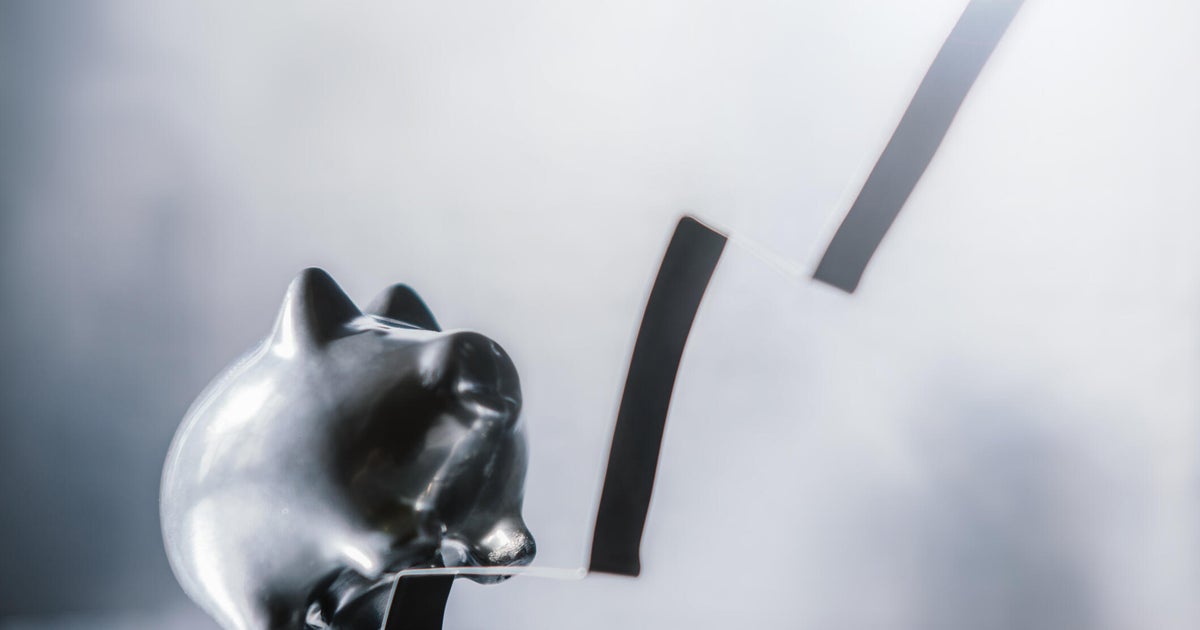U.S. inflation in January surged at fastest rate in 40 years
The annual rate of U.S. inflation is rising at its fastest rate in 40 years as supply-chain disruptions and rising transportation costs show no sign of abating.
A key inflation gauge, the Consumer Price Index, rose 7.5% from a year ago, the Labor Department reported Thursday — the largest increase since May of 1982. Core inflation, which strips out volatile food and energy costs, was 6%. The CPI index rose 0.6% in January, the same pace as in December, but a slowdown from the 0.9% monthly increase in October.
Food, energy and housing prices increased the fastest last month. The price of gasoline is up 40% year-over-year, with recent tensions in Eastern Europe driving costs even higher. Used cars and trucks are up 40.5%, food has climbed 7.4% and shelter has risen 4.4%.
The latest inflation readout "is just another reminder of the intense cost-of-living pressure that so many are under, and the negative economic consequences of that," Peter Boockvar, chief investment officer with Bleakley Advisory Group, told clients of the investment firm.
The factors driving up prices in January are largely the same as they were last spring, when inflation started to surge. Around the world, ports and warehouses are overwhelmed. Hundreds of workers at the ports of Los Angeles and Long Beach, the nation's busiest, were out sick last month. Many products and parts remain in short supply as a result.
The past year has seen the fastest price increases since 1982, a year that saw a recession finally break the double-digit inflation of the late 1970s. That's costing the typical household an additional $250 a month beyond its prepandemic budget, according to a recent Moody's analysis, and wiping out the benefits of rising wages for many workers.
With the labor market remaining tight, Wall Street analysts expect price increases to stick around for some time.
"[T]his underlines our view that a rapid cyclical acceleration in inflation is underway and, with labor market conditions exceptionally tight, it is unlikely to abate any time soon," Andrew Hunter, senior U.S. economist with Capital Economics, said in a report.
The biggest price increases
A range of consumer goods are increasing in price, the government reported. Here are the monthly price increases in January:
- Food: 0.9%
- Energy: 0.9%
- Used cars and trucks: 1.5%
- Apparel: 1.1%
- Shelter: 0.3%
The cost of gasoline dropped in January, while the price of new cars did not change.
Middle-class squeeze
Inflation has fallen hardest on consumers in the middle of the income range, according to an analysis by Wells Fargo.
"Looking at inflation by income shows middle-income consumers have faced the steepest rise in living costs this past year. Inflation for this group has risen 6.7%, half a point stronger than households at both the top and bottom ends of the income spectrum," analysts at the bank write. That's because middle-income budgets devote a larger share to gasoline and used vehicles — the categories that have risen most over the past year.
Many large corporations have told investors they expect supply shortages to persist until well into this year, and are raising their prices to compensate.
Chipotle this week said it was raising menu prices 6% to offset the rising cost of beef and transportation and higher employee wages. It's the second price hike at the fast-food chain in just three months. Starbucks is also increasing menu prices. Levi Strauss & Co. raised prices last year by roughly 7% above 2019 levels because of rising costs, including labor, and plans to do so again this year. Even so, the San Francisco-based company has upgraded its sales forecasts for 2022.
"Right now, every signal that we're seeing is positive,"Levi Strauss CEO Chip Bergh told analysts.
In the past year, sharp increases in the cost of gas, food, cars and furniture have upended many Americans' budgets. In December, economists at the University of Pennsylvania's Wharton Business School estimated that the average household had to spend $3,500 more to buy the same amount of goods and services than they did in 2020.
Fed set to act
Stocks slumped as investors weighed whether the Federal Reserve will have to raise interest rates faster than it had planned to tame inflation. Shortly before the close of trading the S&P 500 was down 1.9%, the Dow lost 1.6% and the tech-heavy Nasdaq dropped 2.2%.
The Fed is expected to raise interest rates up to four times this year to dampen price increases. But some Wall Street analysts expect much more aggressive action.
"For the Fed, this report provides another wake-up call. Inflation is here and it continues to make its presence known everywhere," Bank of America analysts said in a report Thursday. "We remain comfortable with our hawkish call for the Fed to hike seven times this year, beginning at the next FOMC meeting in March."
The Associated Press contributed reporting.





